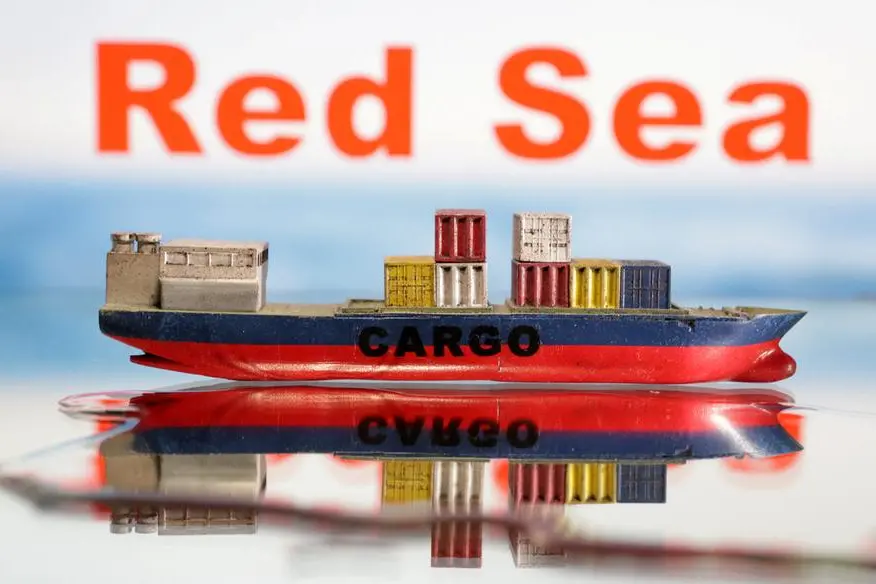PHOTO
Attacks on Red Sea ships will not impact the ratings of GCC states that have strong external buffers, but if they continue, will drain Egypt, a country already in a very difficult external situation.
Jan Friederich, managing director, head of EMEA Sovereign Ratings, Fitch Ratings, told the agency’s Credit Outlook Dubai event that the strikes had already impacted Suez Canal vessel traffic, for which Egypt received $9 billion last year, as it was down 70% in the first weeks of 2024.
“If that lasts, it will be drain on a country that is already in a very difficult external situation,” he said. “More widely, the regional impact, I think it’s still something relatively manageable.”
Egypt is already in discussions with the International Monetary Fund (IMF) regarding a $3 billion loan programme, with IMF officials visiting the country for talks in recent days.
Fitch highlighted escalation of the Israel-Hamas conflict as an event risk which could lead to political instability in the region as well as an impact on tourism and oil prices in its 2024 outlook.
Friederich said the Red Sea attacks by Houthi rebels are considered a step in escalation, but that the range of possible escalation scenarios is wide.
“The extreme end of it is just so far away that it’s not really something that we would be factoring into ratings at this stage,” he said.
Houthi rebels have been carrying out drone strikes on merchant vessels in the Red Sea following the outbreak of the Hamas-Israel conflict last year. In recent weeks, the US and UK have responded with strikes on Yemen.
Friederich said Houthi attacks on oil infrastructure in Saudi Arabia in 2019 showed that there can be real economic impacts of such events in the GCC, he said, adding: “There is the lingering concern about the potential risks to tanker traffic through the Strait of Hormuz.”
GCC prospects
The GCC’s non-oil growth was described by Fitch as ‘slowing but still solid’. Saudi Arabia is seeing relatively strong continued growth due to the accumulation of reforms combined with substantial investments largely driven by the public sector, Friederich said.
However, Saudi Arabia’s challenge is planning for a period of oil prices going lower and the need to invest heavily in diversification, but the kingdom had already shown an ability to consolidate and come back during low oil price periods, he said.
“They were the one country in 2020 when everyone else was pushing stimulus, they were raising VAT rates, which was very unusual.”
No room for complacency
A panel on development in the region’s capital markets concluded that the markets were ‘halfway there’ when it comes to comparison with their equivalents in developed markets.
Mohieddine Kronfol, chief investment officer, global sukuk and MENA fixed income, Franklin Templeton Investments (ME) Limited, said there had been progress but regional financial markets were not competing at the same level as other success story industries such as Dubai's real estate.
He described Dubai’s real estate market as ‘astonishing’ and a world leader and said that the emirate’s airlines and tourism were also competing on a global level.
“Take that success and look at our financial services,” he said. “We pale in comparison,” citing lack of pensions, currency market and the fact that GCC states do not set their own monetary policy.
“There is progress for sure,” he said, “But we still have big gaps in the workforce, we still have important gaps.”
He cited the need for structural reform momentum, including moving away from dollar-pegged currencies to something more flexible, as well as increasing diversity of investor base and issuances.
(Reporting by Imogen Lillywhite; editing by Brinda Darasha)





















